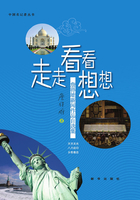As there was no other conveyance to Constantinople than by couriers, sent from time to time by the senate to its Bailli, advice of their departure was given to the ambassador of France, that he might write by them to his colleague, if he thought proper so to do.This advice was commonly sent a day or two beforehand; but M.de Montaigu was held in so little respect, that merely for the sake of form he was sent to a couple of hours before the couriers set off.This frequently obliged me to write the dispatch in his absence.M.de Castellane in his answer made honorable mention of me; M.de Jonville, at Genoa, did the same, and these instances of their regard and esteem became new grievances.
I acknowledge I did not neglect any opportunity of making myself known; but I never sought one improperly, and in serving well Ithought I had a right to aspire to the natural return for essential services; the esteem of those capable of judging of, and rewarding them.I will not say whether or not my exactness in discharging the duties of my employment was a just subject of complaint from the ambassador; but I cannot refrain from declaring that it was the sole grievance he ever mentioned previous to our separation.
His house, which he had never put on a good footing, was constantly filled with rabble; the French were ill-treated in it, and the ascendancy was given to the Italians; of these even, the more honest part, they who had long been in the service of the embassy, were indecently discharged, his first gentleman in particular, whom he had taken from the Comte de Froulay, and who, if Iremember right, was called Comte de Peati, or something very like that name.The second gentleman, chosen by M.de Montaigu, was an outlawed highwayman from Mantua, called Dominic Vitali, to whom the ambassador intrusted the care of his house, and who had by means of flattery and sordid economy, obtained his confidence, and became his favorite to the great prejudice of the few honest people he still had about him, and of the secretary who was at their head.The countenance of an upright man always gives inquietude to knaves.
Nothing more was necessary to make Vitali conceive a hatred against me: but for this sentiment there was still another cause which rendered it more cruel.Of this I must give an account, that I may be condemned if I am found in the wrong.
The ambassador had, according to custom, a box at each of the theaters.Every day at dinner he named the theater to which it was his intention to go: I chose after him, and the gentlemen disposed of the other boxes.When I went out I took the key of the box I had chosen.One day, Vitali not being in the way, I ordered the footman who attended on me, to bring me the key to a house which I named to him.Vitali, instead of sending the key, said he had disposed of it.Iwas the more enraged at this as the footman delivered his message in public.In the evening Vitali wished to make me some apology, to which however I would not listen."To-morrow," said I to him, "you will come at such an hour and apologize to me in the house where I received the affront, and in the presence of the persons who were witnesses to it; or after to-morrow, whatever may be the consequence, either you or I will leave the house." This firmness intimidated him.He came to the house at the hour appointed, and made me a public apology, with a meanness worthy of himself.But he afterwards took his measures at leisure, and, at the same time that he cringed to me in public, he secretly acted in so vile a manner, that, although unable to prevail on the ambassador to give me my dismission, he laid me under the necessity of resolving to leave him.
A wretch like him, certainly, could not know me, but he knew enough of my character to make it serviceable to his purposes.He knew I was mild to an excess, and patient in bearing involuntary wrongs;but haughty and impatient when insulted with premeditated offenses;loving decency and dignity in things in which these were requisite, and not more exact in requiring the respect due to myself than attentive in rendering that which I owed to others.In this he undertook to disgust me, and in this he succeeded.He turned the house upside down, and destroyed the order and subordination I had endeavored to establish in it.A house without a woman stands in need of rather a severe discipline to preserve that modesty which is inseparable from dignity.He soon converted ours into a place of filthy debauch and scandalous licentiousness, the haunt of knaves and debauchees.He procured for second gentlemen to his excellency, in the place of him whom he got discharged, another pimp like himself, who kept a house of ill-fame, at the Cross of Malta; and the indecency of these two rascals was equaled by nothing but their insolence.
Except the bed-chamber of the ambassador, which, however, was not in very good order, there was not a corner in the whole house supportable to a modest man.
As his excellency did not sup, the gentleman and myself had a private table, at which the Abbe de Binis and the pages also eat.In the most paltry alehouse people are served with more cleanliness and decency, have cleaner linen, and a table better supplied.We had but one little and very filthy candle, pewter plates, and iron forks.















